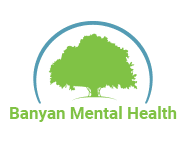Drug Glossary
When it comes to mental health, co-occurring disorders, and the associated treatments, many friends and family members are not familiar with the drug terms and what they actually mean. If you or a loved one is suffering from a drug or alcohol addiction or a mental illness, learning these terms will be very helpful during the recovery process. The mental health specialists from Banyan Mental Health in Boca Raton are here to help you truly understand the terms associated with addiction and mental health.
Addiction: A repeating activity that continuously causes harm to oneself or others.
Addictive Personality: A set of personality traits that make an individual more prone to develop addictions to drugs, alcohol or other habit-forming behaviors.
Age at Onset: The age at which one’s addictive behavior or mental health struggles began which is an important factor in assessing an addiction before a customized treatment plan is created.
Agonist: A substance that triggers a receptor in the brain.
Antagonist: A substance that can reverse another’s effects (a drug that does not elicit a response). It blocks a biological response by binding to a receptor rather than creating the response like an agonist.
Anxiety: Significant feelings of fear. A worry about future events and fear is a reaction to current events. These feelings may cause physical symptoms, such as a fast heart rate and shakiness.
Barbiturate: A substance that acts as a central nervous system depressant, and can therefore produce a wide spectrum of effects, from mild sedation to total anesthesia.
Benzodiazepine: A group of depressants used to induce sleep, prevent seizures, produce sedation, relieve anxiety, and reduce muscle spasms, etc. Also known as benzos.
Biofeedback: This is the process of helping addicts to gain awareness of many physiological functions like heart rate, brain activity, etc. Some of the processes that can be controlled and monitored include brainwaves, muscle tone, skin conductance, heart rate, and pain perception.
Bipolar Disorder: Also known as manic-depressive illness, a brain illness that causes unusual and extreme shifts in mood, energy, activity levels, and the ability to carry out day-to-day tasks.
Codependency: An excessive emotional or psychological dependence on a partner, typically a partner who requires support due to an illness or addiction.
Co-occurring disorder: Describes the presence of both a mental health and a substance-use disorder. Also called a dual diagnosis.
Depression: One of the most frequent types of distress that can result from addiction. It is a mental health disorder characterized by changes in mood, thought, and behavior that causes significant impairment in daily life.
Dual-Diagnosis: The term used when an individual has a mental health disorder, such as depression or bipolar disorder, as well as an active addiction to drugs or alcohol.
Evidence-Based Treatment: Scientifically validated addiction treatment studies that have been conducted and extensive research has been documented on a particular treatment, and has proven to be successful. Drug and alcohol treatment centers provide evidence-based treatment for their patients.
Mental Illness: A wide range of mental health conditions — disorders that affect mood, thinking and behavior. Examples include anxiety, depression, and eating disorders.
Recovery: Reducing or abstaining from substance abuse; often followed by one’s personal life being turned around by way of a supportive environment to return to a normal state of health, mind, or strength. A recovery journey leads to complete sobriety or effective management of mental health illness symptoms.
Relapse: Using drugs or alcohol after a period of sobriety or drug use cessation.
Thought Disorder: Mental health disorder in which one’s thoughts and conversation appear illogical and lacking in sequence and may be delusional. Types of thought disorders include schizophrenia, schizoaffective disorder, and schizophreniform disorder.




